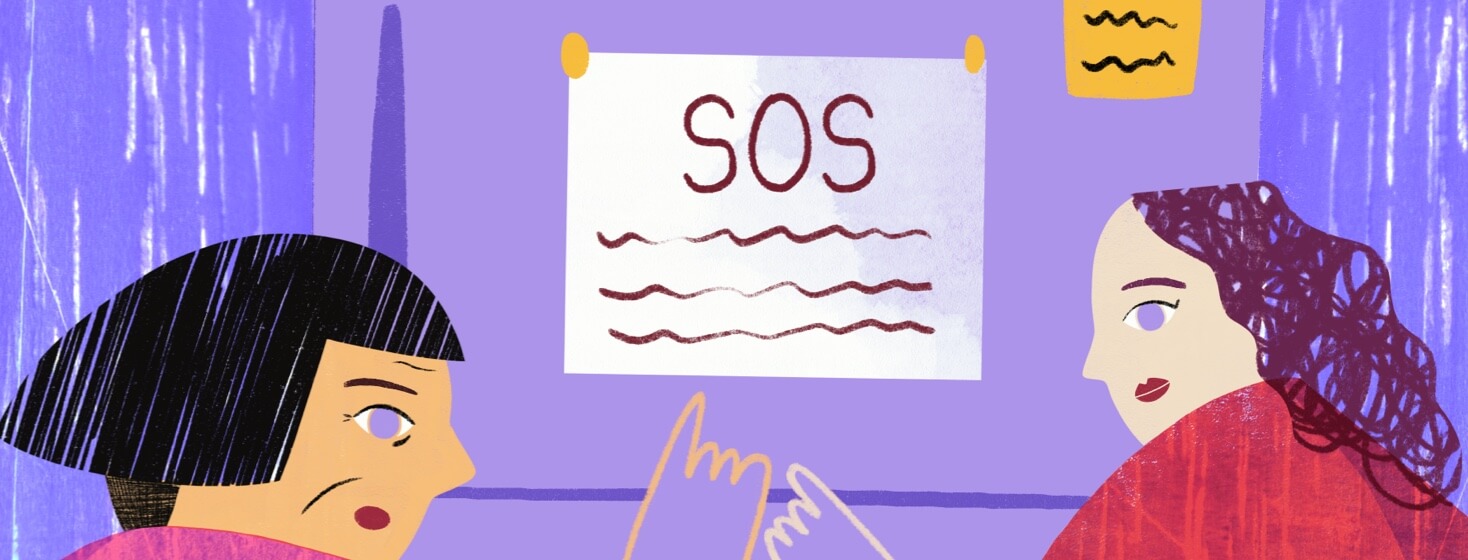Planning for a Mental Health Crisis
When living with bipolar or another mental health disorder, sometimes a mental health crisis arises. A mental health crisis is no one’s fault. It is a sign that your or your love one's treatment may need to change or medicine dosage might need to be adjusted. A mental health crisis can be traumatic for everyone involved. Planning ahead helps to reduce trauma.1-5
Action plan
If you are living with a mental health condition or caring for a loved one with a mental health condition, it is important to create an action plan during a period of stability. You or your loved one should have input into what is the most helpful during a crisis. Share this plan with those you feel comfortable with or with the people your loved one chooses.1-4
People who are most responsive during a crisis should have a copy of the action plan. Place multiple copies throughout the home. Options might include:1-4
- Kitchen drawer
- Nightstand
- On a cell phone
- Refrigerator or corkboard
- Car glove box
What to include
Each person’s action plan will be unique. The goal is to de-escalate the crisis and avoid hospitalization. With a good crisis plan, 911 becomes a last resort. Things to include in a crisis plan include:1-5
- Doctor/psychiatrist/therapist names and contact information
- All health diagnoses and prescribed drugs
- Insurance information and preferred healthcare setting
- Known drug allergies or interactions
- Contact details for local crisis centers or mobile crisis centers
- Trusted family and friends’ names and contact information
- Behavior warning signs
- Known triggers
- National Suicide Prevention Lifeline contact information
- History of suicide attempts or psychotic episodes
- History of substance or alcohol abuse
- What has helped de-escalate in the past
Behavior warning signs
Loved ones need to know the warning signs of a mental health crisis. People living with mental health conditions often do not recognize the early warning signs. Catching a possible spiral early can prevent a full crisis. Some general warning signs include:1,2,5
- Sleeplessness or other changes in sleep patterns
- Verbal threats
- Hostility
- Paranoia
- Increased or slowed down talking or movement
- Increased drug or alcohol use
How to act around a triggered loved one
Avoiding escalation is essential when a loved one is spiraling. A mental health crisis requires staying calm. Whatever your loved one says or does, try not to react. This applies if they are not endangering themselves or others. Ways to approach a loved one in a mental health crisis include:1,2
- Mirror their posture. If they sit, you sit. If they stand, you stand – but do not hover.
- Give them personal space.
- Leave exits accessible so they do not feel trapped.
- Speak calmly, slowly, and soothingly.
- Avoid anger, threats, or criticizing your loved one.
- Be agreeable to requests, as long as they are not dangerous.
- Limit or avoid touching or continual eye contact. This can feel threatening.
- Lock up anything dangerous, such as guns, knives, or drugs.
- Take away the car keys.
- Call trusted friends and family members for support.
Research crisis intervention teams (CITs) in your area
In some cases, you may not be able to de-escalate your loved one. Even with a good plan in place, some people with mental health conditions remain triggered.
One alternative to calling 911 during a mental health crisis is reaching out to a crisis intervention team (CIT). Many communities have CITs available. Take time to research CITs in your area before a mental health crisis occurs. CITs include several resources who are all trained in mental health crises. Members of most CITs include:3,5
- Mental health professionals
- Law enforcement
- People who live with mental health disorders
- Mental health advocates
- Caregivers
Create a psychiatric advanced directive (PAD)
A psychiatric advanced directive (PAD) is a legal document outlining treatment preferences. A person with a mental health disorder completes this when they are stable.1,3-5
In an emergency, a PAD helps your loved get the treatment they need. When they cannot consent to treatment, the PAD states their wishes. A PAD also permits doctors to share medical details with you and other specific loved ones. Each state has slightly different rules for PAD. Talk to your doctor or a lawyer to help you create a suitable PAD.1,3-5
While a mental health crisis can be challenging for you and your loved one, having a plan in place can help improve outcomes.
